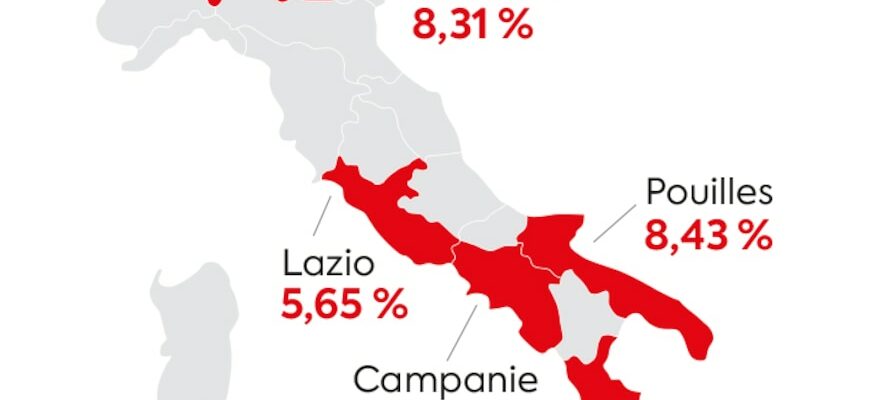Fatalism, a characteristic of our country: one in three French people considers the country’s decline to be irreversible, according to French Fractures Study of the Jean-Jaurès Foundation published in October 2023. What is surprising in a society where the President of the Republic himself, at the time François Mitterrand, claimed in July 1993 that “in the fight against unemployment, we have tried everything”? The idea that politics cannot influence reality has continued to spread, like a venom paralyzing public action. And yet, a few kilometers from home, peoples of die-hard reformers are still resisting impotence.
The effort first requires a clear, long-term diagnosis: in Italy, Sweden or Canada, it is on the brink of the abyss that governments have developed major reforms, called upon to transform their country from sick to model. Above all, it requires unwavering political will, beyond bureaucracy, lobbies and those who think that any change in practices is impossible. At a time when the new government led by Michel Barnier is highlighting, even in the titles of its ministers, “simplification”, “partnership with the territories”, “food sovereignty” or “academic success”, as so many promises, we can only advise them to take a look at what works elsewhere.
The scene has been repeated many times this spring: often under the eye of the cameras, police forces carry out high-speed interventions against dealers. The “clean spot” operations, a showcase of the executive’s action against drug trafficking, have led to the arrest of more than 4,650 individuals, the seizure of 735 kilos of cannabis, 18 kilos of cocaine and nearly 9 million euros. While occasionally effective, they do not overcome the immense structures that today constitute drug trafficking, and even less so its network leaders. To achieve this, France could take inspiration from one of its neighbors, Italy. Haunted for a long time by the demons of the mafia, Rome implemented a series of measures to tackle organized crime in the 1980s. In April, the then Minister of Justice, Eric Dupond-Moretti, had also mentioned the Italian example of justice collaborators as a path for French reform. The “pentitis”, these repentant people working with investigators to give them the keys to their old world, are an interesting path – but with questionable effectiveness – of the Roman judicial world.
Seizure of ill-gotten assets by Italian region, compared to the national level
© / The Express
If Paris were to take Italy as an example, another action is favoured by experts: asset investigations. These were introduced in Italy in 1982 by Judge Falcone, a herald of the anti-mafia fight. “Al Capone, a figure of the Italian-American mafia, was imprisoned partly for tax fraud. Falcone was therefore interested in the action of the Americans against organised crime”, recalls Clotilde Champeyrache, an economist specialising in mafias. “He said that he had ‘followed the money’, that is to say, followed the trail through the cheques to the assets”, adds lawyer Luca Luparia, professor of criminal procedure at the University of Rome. This method has survived him and has been systematised in today’s Italy, accompanied by the seizure of the assets concerned.
In France, asset investigations exist, but are much less developed. “This type of investigation requires time-consuming, tedious work, requiring investigators,” points out Clotilde Champeyrache. “The services do not yet have the means to deploy enough personnel to make these investigations systematic.” According to the specialist, this in-depth work, which meticulously examines each layer of trafficking, is nevertheless essential. “Drug trafficking must be treated exactly like any organized crime enterprise, with similar coordination: each local case is linked to a larger criminal operation at a national and international level,” explains Luca Luparia. The sprawling fight against drug trafficking requires more than simple hit-and-run operations. To imitate Italy, “it takes time, training, and more resources,” insists Clotilde Champeyrache.
.
